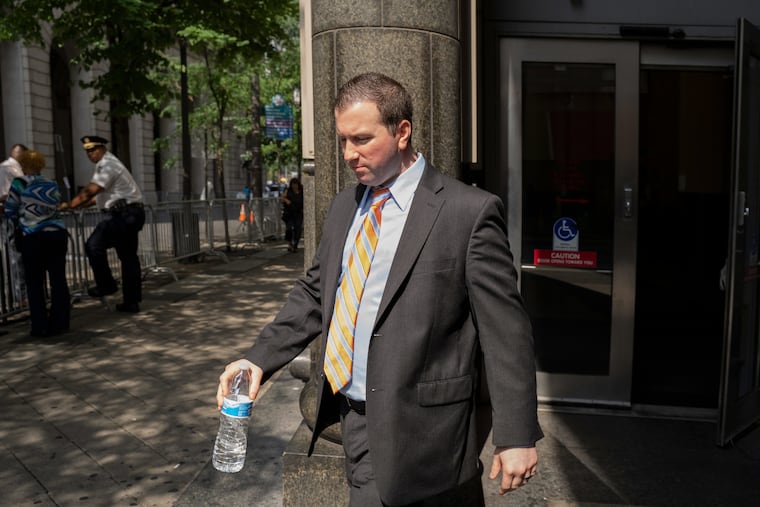From the courts, new threats to voting access and police accountability | Editorial
The U.S. Supreme Court might have further muddied the waters surrounding mail-in voting. Meanwhile, in Common Pleas Court, a rare criminal filing against a police officer was dismissed.

Two court decisions this week may have dealt a blow to a pair of equity and social justice issues that have been among the most fiercely debated topics in our city and state in recent years: voting access and police accountability.
The first ruling came from the U.S. Supreme Court and promises to further muddy the waters surrounding mail-in voting. On Tuesday, the court invalidated a lower court ruling that said ballots mailed without a date could be counted in Pennsylvania.
The Supreme Court did not issue an opinion on the matter but released a one-paragraph order that vacated a decision in May by the U.S. Court of Appeals for the Third Circuit, which found the date requirement was immaterial under the Civil Rights Act and cannot be used as a reason to reject ballots.
The Supreme Court ruling means the issue — which has already been litigated in state and federal courts — will likely be litigated some more, and could impact next month’s election.
» READ MORE: The Supreme Court just undid a key ruling for counting undated Pennsylvania mail ballots
As with almost every political issue these days, Democrats and Republicans are divided on voting access. Democrats consider undated ballots a technical issue that should not invalidate an individual’s vote. Republicans, on the other hand, believe a missing date means the vote should be tossed out.
Does it really matter if the date is missing from a ballot, provided it is mailed in on time? What if the person writes in the date but misspells the month, should that vote be invalidated? It feels akin to turning a person away from the voting booth on Election Day if they don’t know the date.
Bottom line: This is part of a broader effort to disenfranchise voters and stir up confusion surrounding elections. The guiding principle when it comes to election issues should be to make it as easy as possible to vote — which the majority of Americans support. A simple fix here would be to eliminate the date requirement from all mail-in ballots.
» READ MORE: A Philly judge threw out all charges in the murder case against former police officer Ryan Pownall
In the second court ruling, a Philadelphia judge dismissed the murder charges against former police officer Ryan Pownall, who killed David Jones after pulling him over for illegally riding a dirt bike in North Philadelphia in 2017. Pownall said he frisked Jones and felt a gun. The two got into a scuffle. Jones fled and Pownall shot him twice in the back. This incident was the second time Pownall had shot a man in the back as he ran from police.
District Attorney Larry Krasner charged Pownall with murder in 2018 — the first on-duty city officer to face such charges in two decades.
But on Tuesday, Common Pleas Court Judge Barbara A. McDermott dismissed all the charges against Pownall after finding prosecutors failed to give the grand jury proper legal instructions regarding the different degrees of murder, and when and how officers are legally justified to use their gun.
McDermott’s stinging decision found there were “so many things wrong” with the district attorney’s presentment to the grand jury, calling it unreliable and “no good.” She added that if a defense attorney had made such errors, she would “declare them incompetent.”
Krasner has made police accountability a hallmark of his office. He has brought charges against officers for wrongdoing and pushed to exonerate inmates who have been wrongly convicted. Both of those efforts are welcome and necessary if justice is to be truly blind.
However, that cuts both ways. If Krasner wants to hold cops accountable and free those wrongly convicted, he must make sure the cases are airtight, or it will only undermine his credibility before the courts and in the court of public opinion.